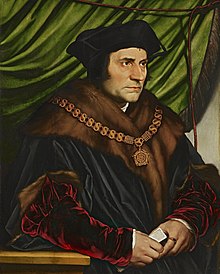A Man Born Again: A Novel Based on the Life of St. Thomas More
A Man Born Again: A Novel Based on the Life of St. Thomas More
by John E. Beahn
Originally published in 1954 by Bruce Publishing Co.
Re-published in 2013 by TAN Books for the TAN Legends Series
TAN Books
Charlotte, North Carolina
www.TANBooks.com
This book is absolutely mesmerizing. The author, John E. Beahn (1910-1990), has managed to somehow crawl into the mind of the great Lord Chancellor of England and, writing in the first person, chaperones him right into your presence. You meet Sir Thomas in the Tower of London where the author of “Utopia” awaits an unannounced yet obvious fate at the hands of his King, Henry VIII. Thomas, looking down from behind his prison window, has you look with him and survey the city of London below.
Just like that you are walking with Sir Thomas down Milk Street and he shows you where he was born. You pass by St. Anthony’s on Threadneedle St. and he shows you where he first went to school. Suddenly you are walking across a bridge and John More, Sir Thomas’ father, is walking with you. Thomas explains that he is being taken by his dad to Lambert Place to meet the Lord Chancellor of England, Archbishop Morton. You watch as the Archbishop accepts 12-year old Thomas as a page. Why not? Thomas is already versed in Latin and English and rhetoric and mathematics. You do notice though, that the young Thomas More is quite taken with the things of the world, more so than those esteemed by God.
Filled with a false pride at his superb intelligence and against his father’s wishes, Thomas agrees with Archbishop Morton that he should go to Oxford. His father objects and wants him to study law at New Inn. The Lord Chancellor has his way, and Thomas begins preparations to leave for Oxford. His father becomes distanced from him but Thomas does not seem to care. He is being treated as a young man of “importance” by his acquaintances and other students and even people in the street. He relishes the popularity. His climb up the ladder of success has begun and it is moving quickly. He tells you at Charterhouse that he is “determined to be a saint just like all the Carthusians.” You, as the reader, already know better but are anxious to see how his sudden “call to sanctity” develops.
You now follow along with Sir Thomas and observe as he becomes a fine lawyer and a sought after lecturer. He rejects the idea of the priesthood and marries Jane Colt, has four children, becomes widowed when Jane dies from illness, marries Alice Middleton and pursues his dream of being a writer. He does gain notoriety with his book, Utopia, and is suddenly under the watchful eye of Cardinal Wolsey and King Henry VIII.
Suffice it to say that once again the primary of the seven deadly sins, Pride, reared its ugly head and consumed the King of England. Infatuated with Anne Boleyn he wanted to divorce Catherine and marry Anne. He also wanted Pope Leo to annul his marriage to Catherine. This the Pope refused to do. In the affair known as King Henry’s “Great Matter”, the King was not about to defer to the Pope. He took over the church in England and demanded oaths of fidelity to the realm. You now travel with a humble Thomas More who confides in you that “God permitted me to sink into that blackness of spirit and to the darkness about myself. And when I could endure no more, He returned to me.” Thomas More refused to reject his faith and his church and his God. He was canonized a martyred saint on May 19, 1935 by Pope Pius XI.
One final thing, treat yourself and read this book. You might find a new friend albeit someone a bit older than you. His name is Saint Thomas More.
- He Died in a Concentration Camp—His Crime Was Being Catholic - May 2, 2024
- REJOICE! The Journey to Christmas Has Begun - December 5, 2023
- A Gangbanger’s Journey to Sainthood: Meet Peter Armengol - November 7, 2023



Thanks Larry,
It is really strange to think how Henry VIII so damaged the Church in England and how the Church of England has survived and evolved with him as its founder. At least the C of E recognizes the sainthood of Thomas More and John Fisher, but nor Henry VIII.
Thanks for this wonderful review.
God Bless,
Don
Thank you Don–I truly appreciate your comments.
Larry